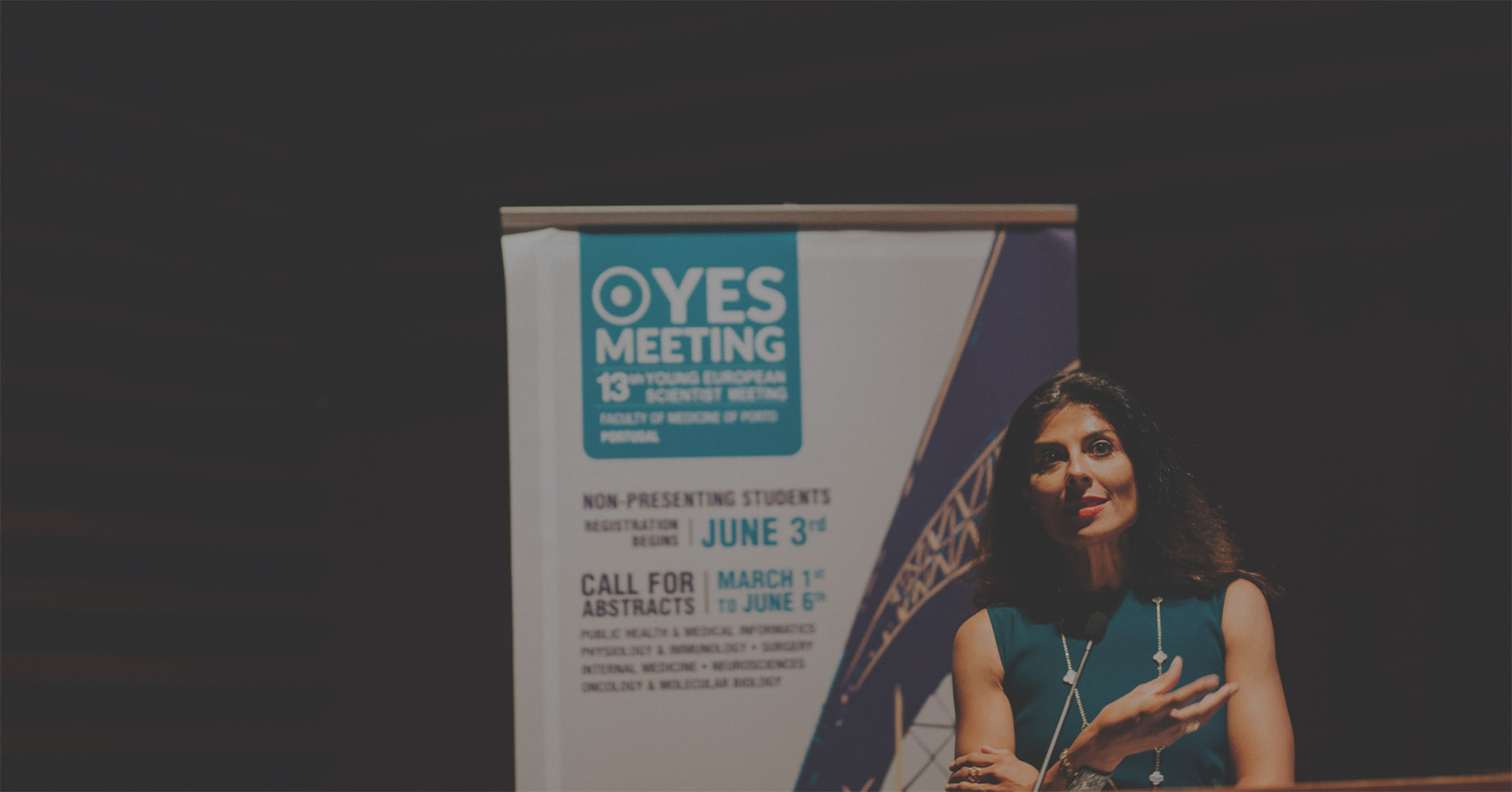
This year, in the Nobel Prize Session we will have the pleasure of having Dr. James Orbinksi with us!
He was the International Council President of Médecins Sans Frontières (Doctors Without Borders), at the time the organization received the Nobel Peace Prize in 1999.
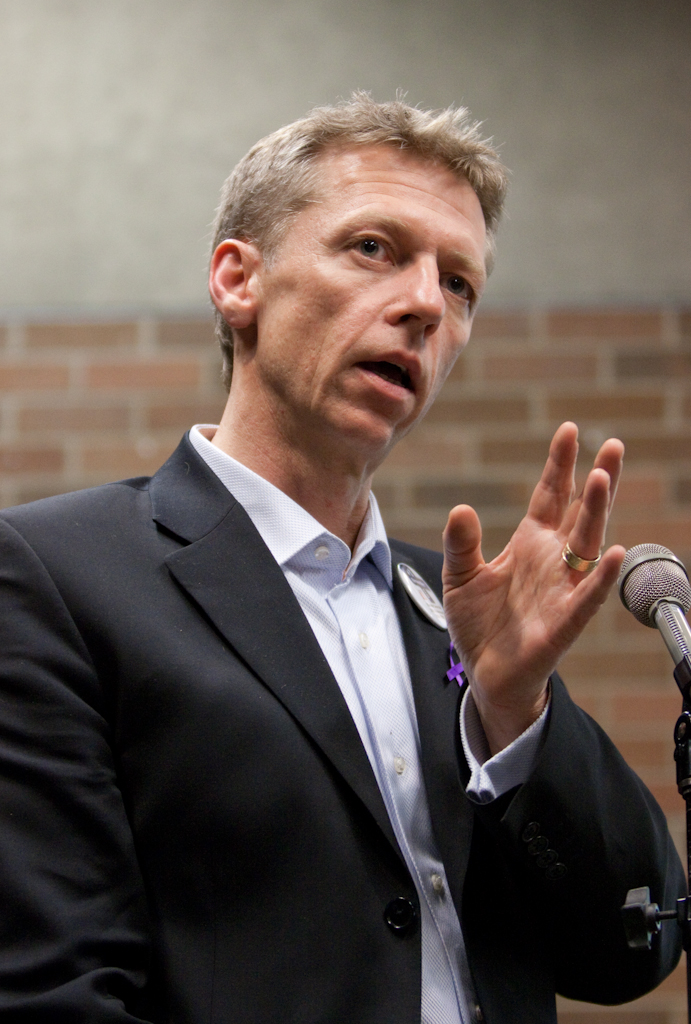
Dr. Orbinski is professor and inaugural Director of York University’s Dahdaleh Institute for Global Health Research, and professor of medicine (clinical public health) at the University of Toronto. As a medical doctor, humanitarian practitioner and advocate, best-selling author, and a leading scholar in global health, Dr. Orbinski believes in actively engaging and shaping our world so that it is more just, fair and humane. He has worked providing medical humanitarian relief in situations of war, famine, epidemic disease and genocide with Médecins Sans Frontières / Doctors Without Borders (MSF). He was elected International President of MSF from 1998-2001, and accepted the Nobel Peace Prize awarded to MSF in 1999. He is the author of the award-winning and best-selling book An Imperfect Offering: Humanitarianism in the 21st Century. He was co-Chair of the Drugs For Neglected Diseases Working Group, which launched the not-for-profit Drugs for Neglected Diseases Initiative ( DNDi.org). He also co-founded Dignitas International which started and maintained more than 400,000 people in Malawi on full treatment for HIV/AIDs, actively conducted and published more than 100 research papers, and trained more than 12,000 Malawian Health Care Workers. Dr. Orbinski leads the Dahdaleh Institute at York University, which is committed to equity, excellence and effectiveness in critical problem solving for its three research themes of Planetary Health, Global Health and Humanitarianism and Global Health Foresighting. His current work focuses on developing new infectious disease control tools to improve humanitarian assistance in refugee camp and IDP settings, and using Computer Modelling and Artificial Intelligence for better humanitarian and clinical public health interventions in response to pandemic diseases (like COVID-19), and in response to the health impacts of global warming in the Global South. He is an Officer of the Order of Canada, and has received the Meritorious Service Cross for his leadership in providing direct medical relief in Kigali during the 1994 genocide in Rwanda. An avid canoeist, Dr. Orbinski lives in Guelph, Canada, with his wife and their three teenagers.
A lesson learned is knowledge or understanding gained by experience. The experience may be positive, as in a successful test or mission, or negative, as in a mishap or failure ... Dr. Orbinski will draw on his 35 years of experience as a humanitarian practitioner, and global health innovator and researcher to offer some “Lessons Learned” and “Do’s and Don’ts” for more effective Vision, Voice and Action in 21st Century Global Health and Humanitarianism.
In this year's YES Meeting we will have an afternoon dedicated to women that occupy positions of leadership with global impact in the biomedical field. They will take us through their individual journeys, elaborating on some of their challenges and triumphs as they accomplish their goals. In the Career Session, you will hear a lecture from Dr. Nupur Kohli, a multi-award winning Healthcare Leader.
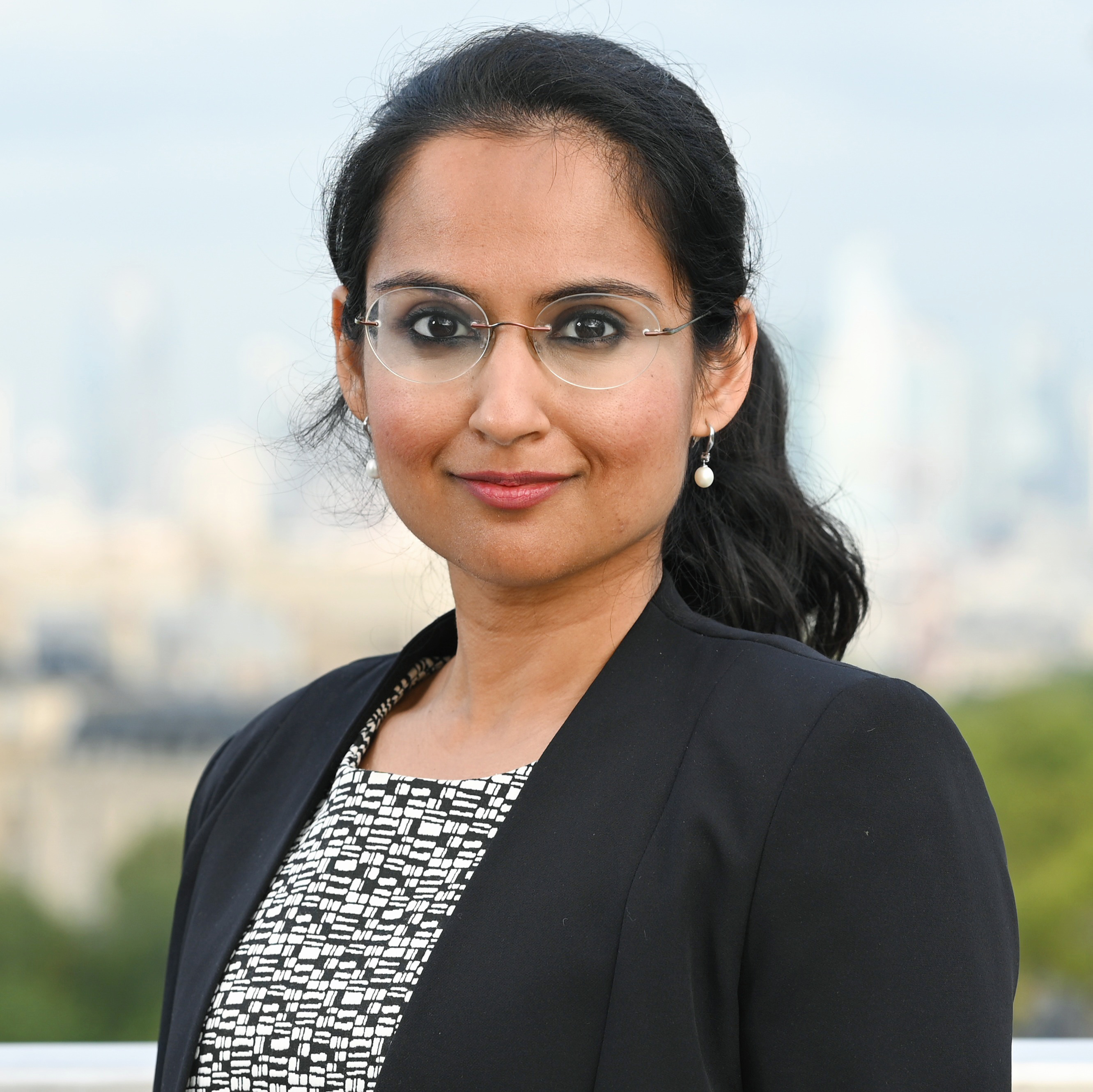
Nupur Kohli, an M.D. and Harvard Business School, Exec MBA PLD Leadership and Strategy, is a multi-award winning Healthcare Leader, Executive Leadership trainer, Speaker, Author and Medical Doctor. She was a speaker in several sessions and delegate at the World Economic Forum Annual Meeting in Davos 2022. Currently she is supervisory board member for UNICEF Netherlands, board member of Amsterdam Economic Board and Impact Advisory Council member of the World Economic Forum Global Shapers. She is also co-secretary of the United Nations Association Netherlands, an appointed member of the European Health Parliament (EHP), CEO Vedanka BV, specialist in European Business Leadership training to the executives of large companies, CEO of drnupurkohli.com and healthcare advisory NIIS Health, Netherlands. She is project champion for the Women’s Health Initiative of the World Economic Forum. An internationally acclaimed speaker, Nupur has given worldwide more than 150 speeches in recent years. Winner of the TEDx speaker award in Delft, Netherlands she has given 7 TEDx Talks in Europe and Asia and has been regularly featured in European and International media outlets in all formats. Further, she aspires to reduce stress in societies and businesses, affecting decision-making, productivity, and profitability. She did substantial research on stress and productivity and is author of the book "Chill! How to survive stress and improve personal and professional productivity. Symptoms and solutions to chronic pressure" with a foreword from two former Prime Ministers from Europe and Asia. She received the Most Inspiring Woman of the Netherlands award twice. For leading gender equality and women empowerment, honored by the Dutch Government. Dutch Financial Times (FD) has placed her in the list of top 50 young leaders of the Netherlands 2019.
Dr. Nupur Kohli will talk about her journey in medicine and how she used her knowledge in different fields. The combination of science and leadership is the future to reach better health and wellbeing for all. How can we apply and strengthen this?
In this year's YES Meeting we will have an afternoon dedicated to women that occupy positions of leadership with global impact in the biomedical field. They will take us through their individual journeys, elaborating on some of their challenges and triumphs as they accomplish their goals.
In the Novo Nordisk Prize Session, you will hear a lecture from Professor Molly Stevens, Professor at Oxford University, Imperial College London and Karolinska Institute and winner of the 2018 Rosalind Franklin Medal and Prize and the 2023 Novo Nordisk Prize.

Prof Molly M Stevens FREng FRS was appointed John Black Professor of Bionanoscience at Oxford University in April 2023 and also holds part-time professorships at Imperial College London and Karolinska Institutet.
She graduated with a First-Class Honours BPharm degree from Bath University in 1995 and a PhD from the University of Nottingham in 2001. After postdoctoral research in the Langer Lab at MIT, she joined Imperial College London in 2004 as a lecturer and was promoted to Professor in 2008 as one of the youngest Professors ever in the history of the institution.
Molly’s multidisciplinary research balances the investigation of fundamental science with the development of technology to address some of the major healthcare challenges. She is a serial entrepreneur and the founder of several companies in the diagnostics, advanced therapeutics and regenerative medicine space. Her work has been instrumental in elucidating the bio-material interfaces. She has created a broad portfolio of designer biomaterials for applications in disease diagnostics and regenerative medicine. Her substantial body of work influences research groups around the world (>430 publications, h-index 104, >44k citations, 2018, 2021 and 2022 Clarivate Analytics Highly Cited Researcher in Cross-Field research).
Molly holds numerous leadership positions including Director of the UK Regenerative Medicine Platform "Smart Acellular Materials" Hub, Deputy Director of the EPSRC IRC in Early-Warning Sensing Systems for Infectious Diseases and Scientist Trustee of the National Gallery. She is Fellow of the Royal Society and the Royal Academy of Engineering (UK), Foreign Member of the National Academy of Engineering (USA) and International Honorary Member of the American Academy of Arts and Science.
In this talk I will discuss highlights of our nanomedicine portfolio including nanosensors for diagnosing and monitoring infectious and non-communicable diseases, and high molecular weight polymer carriers for enhanced delivery of saRNA therapeutics. I will present advances in Raman spectroscopy for high-throughput label-free characterization of single nanoparticles (SPARTA™) that allow us to integrally analyse a broad range bio-nanomaterials such as polymer particles, liposomes and extracellular vesicles without any modification. SPARTA™ has become an integral tool for the design of nanotherapeutics, with recent examples including DOPC-containing lipid nanoparticles for nucleic acid delivery and dendrimersome-based systems for controlled delivery of antibacterial drugs, and for profiling extracellular vesicles (EVs) for detection of breast cancer through a minimally invasive liquid biopsy. I will also discuss our cell interfacing nanoneedle platforms for multiplexed intracellular biosensing at sub-cellular resolution and modulation of biological processes. I will explore how these versatile technologies can be applied to transformative biomedical innovations while actively engaging in efforts towards the democratisation of healthcare.
This year, the Neurosciences Session will unravel the secrets of the sensory world!
In this Session, you will have the chance to learn about the different ways in which we experience the sensory world and how this correlates to several aspects of cognition and behavior. Furthermore, this Session will dive into the topic of crossmodal plasticity, how it might recycle the intrinsic multisensory scaffolding of functional brain networks and its implications in sensory restoration.
This Session will count with the presence of Professor Jamie Ward, Professor of Cognitive Neuroscience at the University of Sussex, and Professor Olivier Collignon, Professor at UCLouvain and Director of the CPP Lab.

Olivier is a research fellow at the National Fund for Scientific Research (Belgium) and Professor at UCLouvain. He also holds a part-time position at the Sense Innovation and Research Center (HES-SO Valais) in Switzerland. His lab (CPP-Lab: https://cpplab.be/) is currently a vibrant place hosting 18 researchers from several countries and with diverse backgrounds (psychology, engineering, physics, and philosophy) which creates a fertile environment for the development of multidisciplinary research. The CPP lab relies on the respective advantages of a plurality of methods (Psychophysics, EEG/MEG, stereotactic-EEG, TMS, fMRI) to converge toward a comprehensive understanding of the mechanisms underlying crossmodal perception and plasticity. More generally, his research is driven by the strong conviction that the study of sensory deprived individuals represents an excellent model to probe how the brain develops, maintains, and changes its functional tuning to adapt its interaction with the environment. Olivier was among the first to generate the idea that crossmodal reorganization in blind people is constrained by the original computational duties of the visually deprived occipital regions. His scientific achievements both conceptual and methodological prompted several (inter)national collaborations.
The study of the functional organisation of brain regions deprived of their preferred sensory inputs (eg. the occipital cortex of the blind or the temporal cortex in the deaf) has provided unprecedented new insights on the enduring ‘nature versus nurture’ debate on the mind/brain development. The observation that temporal regions in the deaf or occipital regions in the blind extend their response to inputs from the remaining senses highlight the role experience plays in shaping the sensory-tuning of brain regions (Nurture). However, the fact that this crossmodal plasticity follows organisational principles similar to the ones observed in the hearing or sighted brain highlights that intrinsic forces impact on the development of the functional organisation of the brain (Nature). In the talk, I will rely on the most recent data collected in our lab to suggest that crossmodal plasticity recycles the intrinsic multisensory scaffolding of functional brain networks. I will conclude the talk by mentioning the implication this research has on sensory restoration.
Jamie Ward is Professor of Cognitive Neuroscience at the University of Sussex, UK. He has an MA in Natural Sciences from Cambridge and Ph.D. in Psychology from Birmingham, and previously held a faculty position at University College London before moving to Sussex. His research concerns the neurocognitive underpinnings of unusual sensory experiences with a long-standing expertise in synaesthesia, and a more recent research profile in atypical sensory sensitivities. His research group employs various methods within cognitive psychology and cognitive neuroscience (e.g. fMRI). He was a Director of Sussex Neuroscience and was Founding Editor of the journal, Cognitive Neuroscience. In addition to his research, he is well-known as an author of leading textbooks (Students Guide to Cognitive Neuroscience; Students Guide to Social Neuroscience).
We do not all experience the sensory world in the same way. For example, for some people a sound may trigger a colour (in synaesthesia) or an intense aversion (in autism, or misophonia) and other people may hear sounds in the absence of any external cause (in hallucinations). In this talk, I will discuss how these phenomena are both similar to and different from each other with reference to candidate cognitive and brain-based mechanisms. More generally, these phenomena do not exist in isolation but, instead, atypical experiences are accompanied by wider profiles of differences affecting multiple facets of cognition and behaviour.
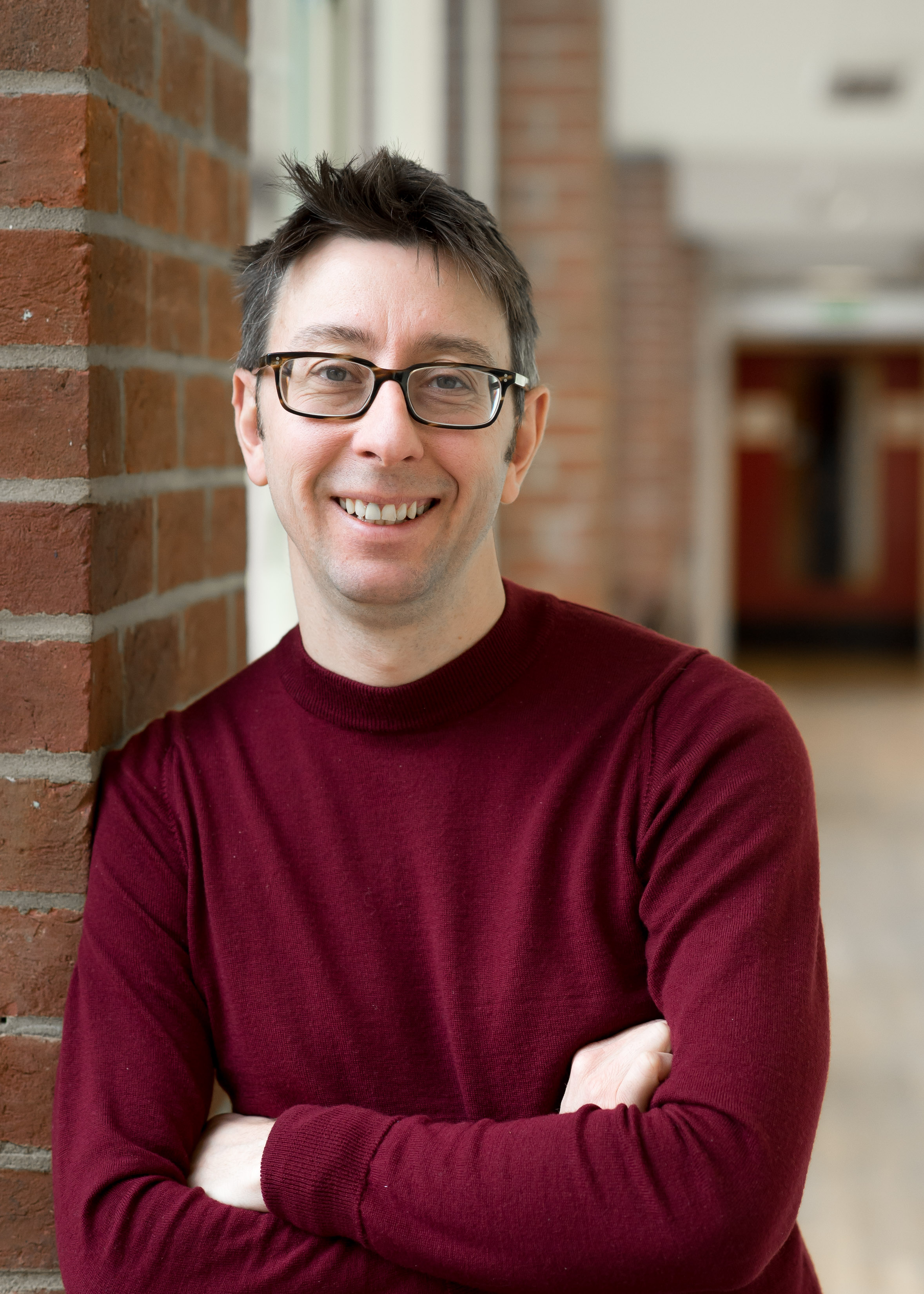
The continuous technological advances on molecular biology have allowed the development of novel drugs in several medical fields. However, this enhancement has not been applied to antibiotics, mostly due to the problem of emerging antibiotic resistance. Therefore, it is crucial the development of new therapeutic targets. In this year’s Molecular Biology Session, promising technologies for the development of new antibiotics will be presented. From molecular mechanisms on protein quality control - bacPROTACTS - to phage therapy, this edition's Molecular Biology Session will feature Professor Laurent Debarbieux from Lille University, in France, and Professor Tim Clausen from Research Institute of Molecular Pathology in Vienna, Austria.
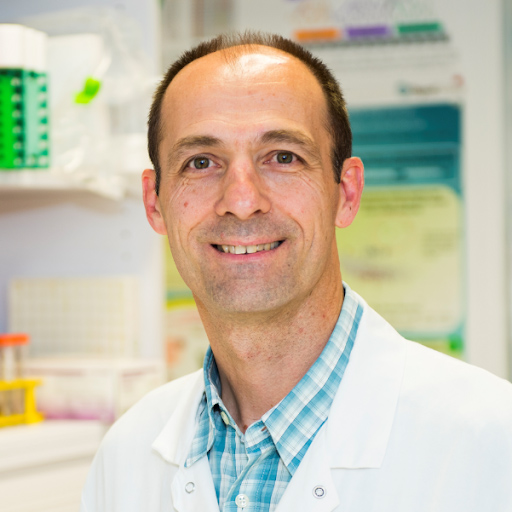
Laurent Debarbieux is a molecular microbiologist who holds a PhD from Lille University, France. He first studied the bacterial model organism Escherichia coli and in particular protein folding and protein secretion during his Post-doctorate in Harvard Medical School. After joining Institut Pasteur, he turned his attention to bacteriophages and their use to treat bacterial infections caused by antibiotic resistant bacteria. Using murine models his team currently investigates the potential and limits of phage therapy. L. Debarbieux is a Trustee of the International Society for Viruses of Microorganisms and President of the non-for profit association P.H.A.G.E. (Phage for Human Application Group Europe).
The killing efficacy of bacteria by bacteriophages is supported by more than a century of in vitro experiments. Less abundant is the literature on in vivo models and rare are the clinical trials supporting phage therapy. In this talk, I will highlight the scientific barriers to overcome to improve patient’s access to bacteriophage treatments. Starting from the choice of the bacteriophage, moving toward the pharmacometric data and ending with the synergistic role of the host immune system, I will decipher the underlying mechanisms that explain the discrepancies between robust experimental data and weaker clinical evidences.
Tim Clausen grew up in Kappeln/Schlei (Germany) and studied Biology at the University of Constance specializing in Bio-organic Chemistry (Prof. Dr. Sandro Ghisla). In 1994, he joined the group of Prof. Dr. Robert Huber (Max-Planck-Institute for Biochemistry, Martinsried, Germany) to learn Protein Crystallography. After obtaining his Ph.D., Tim continued at the MPI as a Junior Group Leader studying the mechanistic versatility of protein co-factors. In 2002, he was recruited as a Group Leader to the Institute of Molecular Pathology (IMP) in Vienna (Austria), where he was promoted in 2009 to a Senior Scientist. In their research, the Clausen Group analyzes the mechanisms of protease and chaperone machines implicated in protein misfolding diseases and bacterial pathogenicity. The group discovered the phosphorylation of arginine residues as novel protein modification and revealed its role as degradation tag in bacterial. Building on this work, the group developed the BacPROTAC concept, bringing small-molecule degraders to the bacterial world.
Hijacking the cellular protein degradation system offers unique opportunities for drug discovery, as exemplified by proteolysis targeting chimeras. Despite their great promise for medical chemistry, it has so far not been possible to reprogram the bacterial degradation machinery to interfere with microbial infections. In the recent years, we developed small-molecule degraders, so-called BacPROTACs, that bind to the substrate receptor of the ClpC:ClpP protease, priming neo-substrates for degradation. In addition to their targeting function, BacPROTACs activate ClpC, transforming the resting unfoldase into its functional state. Drug susceptibility and degradation assays performed in mycobacteria demonstrate in vivo activity of BacPROTACs, allowing selective targeting of endogenous proteins via fusion to an established degron. In parallel, we characterized the mechanism of the antibiotics cyclomarin A and ecumicin, targeting the ClpC:ClpP system. Our studies revealed two small Clp proteins as scavenger proteins that buffer the amount of antibiotics. To overcome this protection system, we developed a BacPROTAC that induces degradation of ClpC together with its caretaker. The dual Clp degrader, built from linked cyclomarin A heads, was highly efficient in killing pathogenic Mycobacterium tuberculosis, being >100-fold more potent than the parent antibiotic. In sum, our data reveal Clp scavenger proteins as important components of the bacterial stress response and highlight the potential of BacPROTACs as future antibiotics.
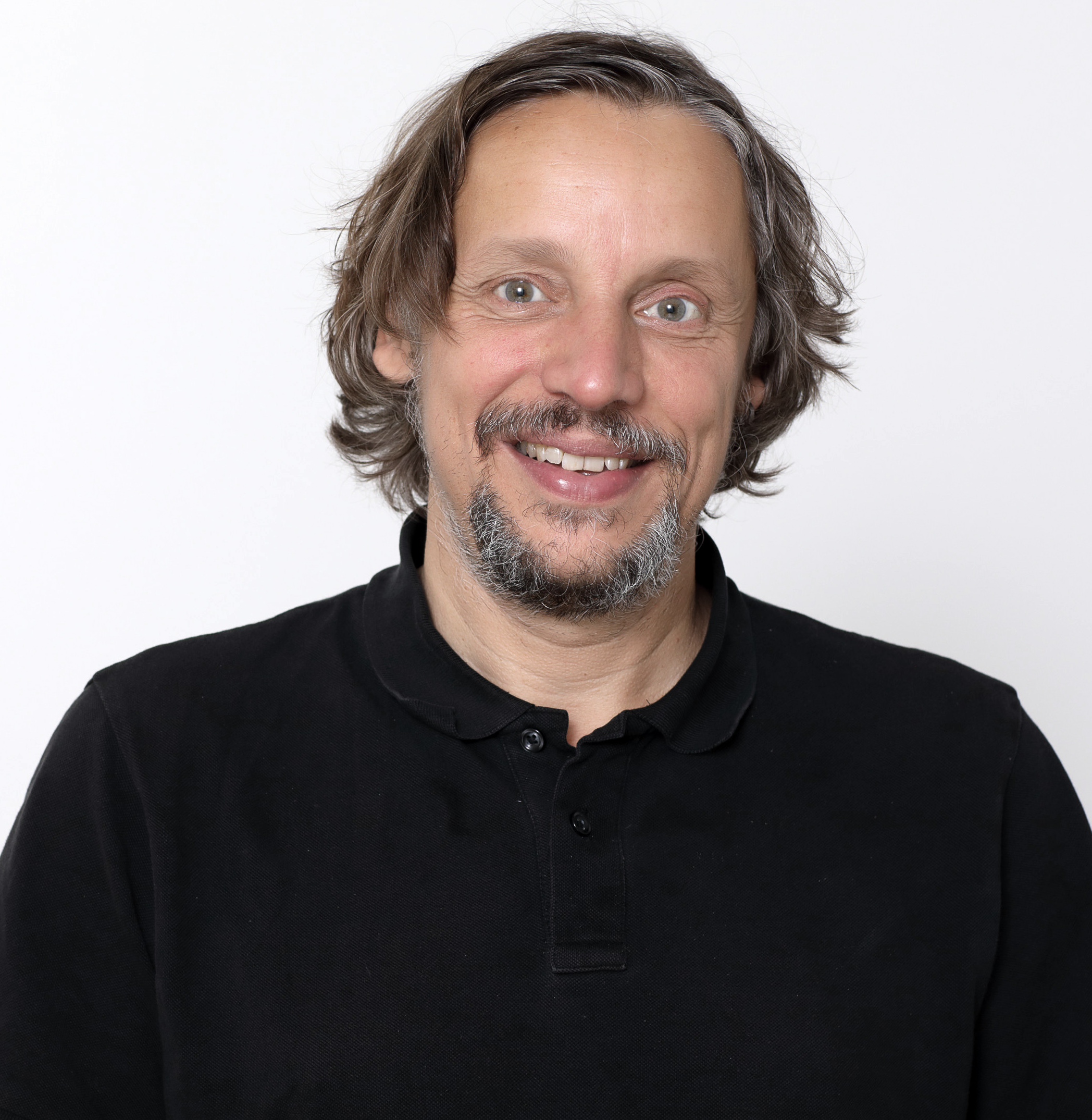
This year, the Young Innovators Session will bring you a new outlook on the product of the minds of the new generation. With evergrowing demands on the technology and innovation required for quality healthcare, different backgrounds and perspectives are becoming increasingly essential. These lectures will present to you ambitious entrepreneurs and their brilliant creations, with the potential to push their fields forward, as we dive into a more entrepreneurial side of science, brought to you by the brightest young minds of the next generation.
This Session will feature Joseph Bentley, founder and CEO of ACT Medical, and Rodrigo Val d’Oleiros e Silva, CEO of Orgavalue.

Joseph is an International Award winning product designer and Managing Director of ACT Medical. He was the first recipient of the Medical James Dyson award in 2021, and is now looking to revolutionize the treatment of bleeding from penetrating wounds, with a particular focus on knife crime. Joseph is also undertaking an 1851 Enterprise Fellowship at the Royal Academy of Engineering as well as being a Fellow of the Royal Society of Arts, where he has a keen interest in championing non-traditional pathways into STEM.
In this talk I will cover topics spanning from my journey into STEM (dyslexic, poor exam performance, route through product design) and experience working on the UK Ventilator Challenge to my personal story about knife crime. I will also elaborate on the University project that had me working on a new system to stop bleeding from stab wounds, that later earned me the Dyson Award, ACT Medical and the progress of the project to date.
Rodrigo Val d’Oleiros e Silva is the CEO & Founder of Orgavalue, a start-up focused on innovative tissue bioengineering therapies, having recently won the Young Entrepreneur Award 2022 by ANJE with a representation of the Minister of Culture and the Portugal Presidency. Rodrigo is a Doctor of Dental Medicine and holds a degree in Entrepreneurship and Technology from Stanford University and U.C. Berkeley. He also Studies Medicine at the School of Medicine of the University of Minho and is a PhD Student in the International Program BioTechHealth at ICBAS/UP, in collaboration with the EIT Health PhD Ageing Program. Furthermore, he is a Researcher in regenerative medicine and tissue bioengineering at i3S/INEB and a Representative of Research and Innovation and Member of the Governing Board of European University Alliance for Global Health. Rodrigo Val d’Oleiros e Silva is also one of Forbes 30 Under 30 i n HealthCare.
Coming soon.
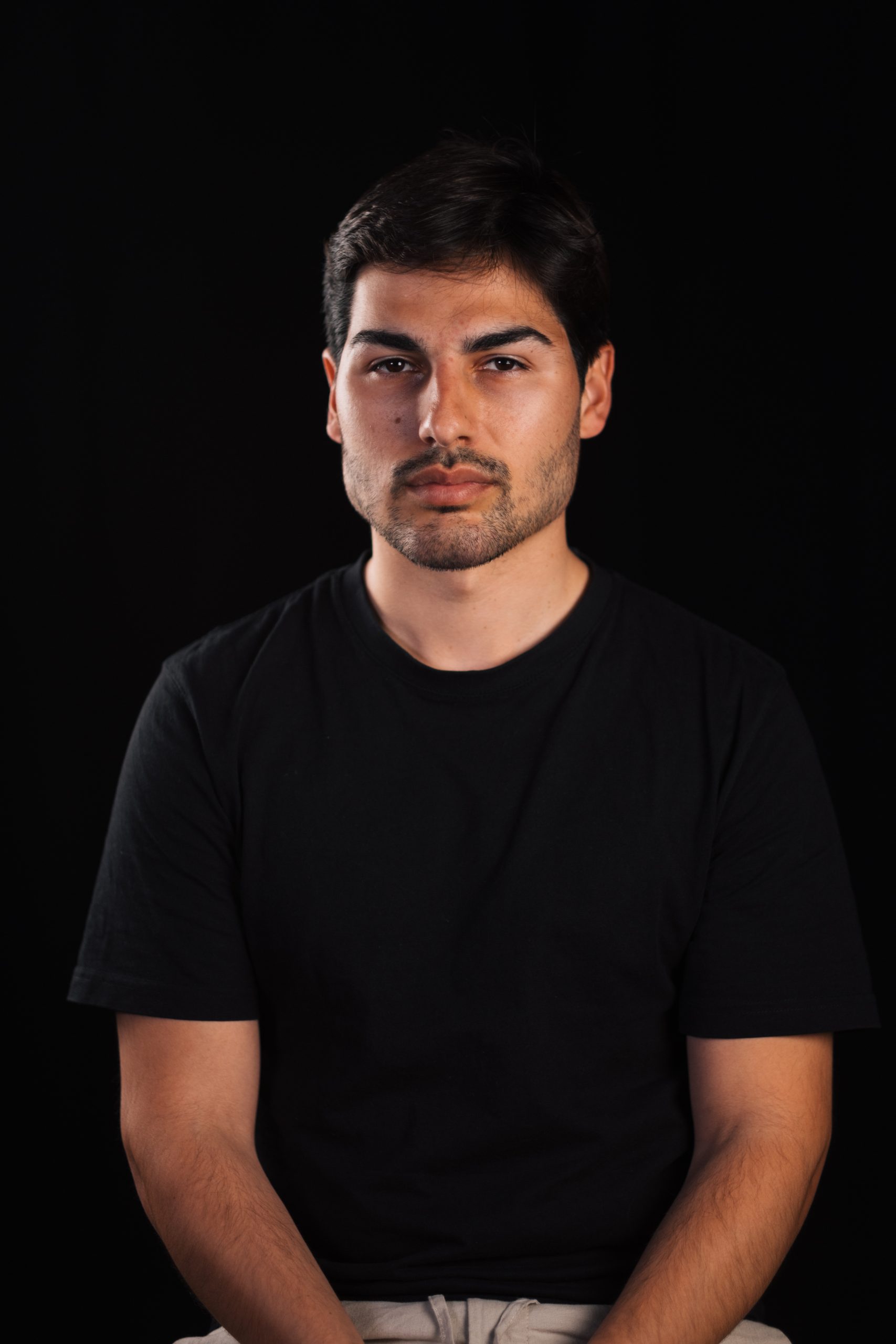
This year's Clinical Session will be on the topic of Dermatology, a medical specialty which is being explored in several observational and interventional clinical studies, involving patients with a broad range of diseases. From novel diagnostic approaches to innovative methodologies of skin cancer treatment, these lectures will bring some of the latest technologies in dermatologic care.
This Session will feature Dr. Nicola Mulholland from King’s College Hospital, in London, and Professor Vasilis Ntziachristos from the Technical University of Munich.

Dr Nicola Mulholland is a Consultant Clinical Radiologist and Nuclear Medicine Physician specializing in radionuclide radiotherapy, functional imaging with PETCT& WBMRI, cross sectional radiology and cancer. She received her medical degree from the University of London in 1995 and became a Fellow of the Royal College of Physicians in 1999. She joined King's College Hospital in 2007 and is the lead clinician for nuclear medicine and PETCT. She is also an honorary senior lecturer at King's College London.
Dr Nicola Mulholland also became a Fellow of the Royal College of Radiologists in 2004. She completed dual training in clinical radiology and nuclear medicine and was registered by the General Medical Council as a specialist in March and December of 2007.
Coming soon.
Professor Vasilis Ntziachristos studied electrical engineering at Aristotle University in Thessaloniki. Following his M.Sc. and Ph.D. in the Department of Bioengineering at the University of Pennsylvania, he was then appointed Assistant Professor and Director of the Laboratory for Bio-Optics and Molecular Imaging at Harvard University and Massachusetts General Hospital. Since 2007, he has served as Professor of Medicine and Electrical Engineering and the Chair of Biological Imaging at the Technical University of Munich and Director of the Institute of Biological and Medical Imaging at Helmholtz Munich. Prof. Ntziachristos is also currently Director of Bioengineering at the Helmholtz Pioneer Campus and the Head of the Bioengineering Department at Helmholtz Munich. Prof. Ntziachristos is the founder of the journal Photoacoustics, regularly Chairs in international meetings and councils and has received numerous awards and distinctions, including the Karl Heinz Beckurts prize (2021), the Chaire Blaise Pascal (2019) from the Region Ile-de-France, the Gold Medal from the Society for Molecular Imaging (2015), the Gottfried Leibnitz prize from the German Research Foundation (2013), the Erwin Schrödinger Award (2012) and was named one of the world’s top innovators by the Massachusetts Institute of Technology (MIT) Technology Review in 2004.
Biological discovery is a driving force of biomedical progress. With rapidly advancing technology to collect and analyze information from cells and tissues, we generate biomedical knowledge at rates never before attainable to science. Nevertheless, conversion of this knowledge to patient benefits remains a slow process. To accelerate the process of reaching solutions for healthcare, it would be important to complement this culture of discovery with a culture of problem-solving. In this talk, we focus on advances in optical and optoacoustic technologies from the perspective of problem solving, in particular in the areas of early disease detection and monitoring. We show how new classes of imaging systems and sensors can play a critical role in the frequent assessment of biochemical and pathophysiological parameters of systemic diseases, complement knowledge from –omic analytics and drive integrated solutions for improving healthcare.
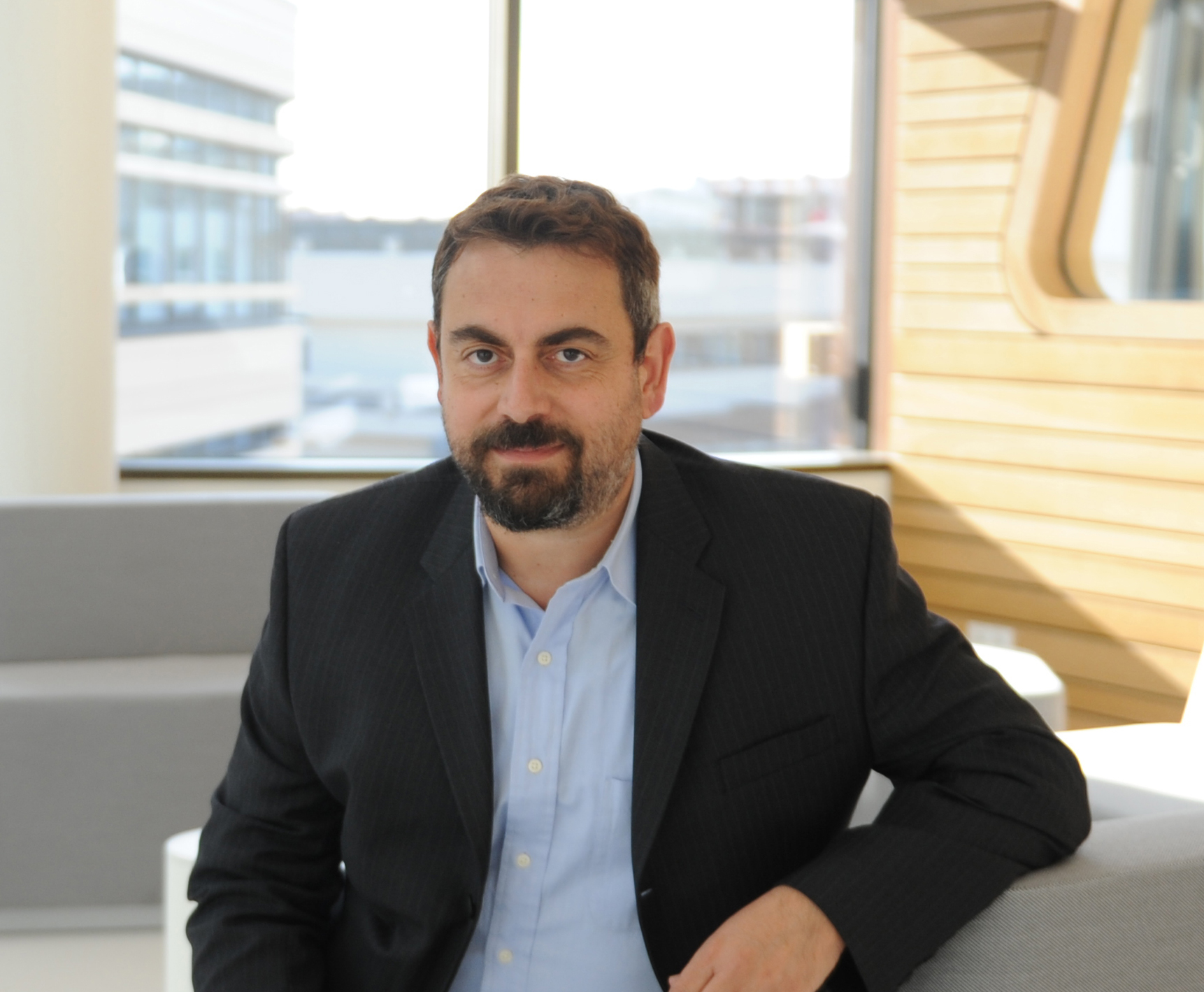
In this Session, you will have the chance to learn about Paleogenetics, the study of the past through the examination of genetic material preserved from the remains of ancient organisms. Studying ancient DNA provides us with information about many aspects of the human species in the past: population demography, genealogy, disease studies, phylogenetic relationships between different mammals and interpretation of paleoclimate.
In recent years, groundbreaking advances have been made in uncovering the secrets of
archaic and ancient human genomes. The sequencing and analysis of these genomes allowed
us to better understand the origins, movements and relationships of the populations of the
past and present. Although the genomes of present-day humans provide some clues to
the historical evolution of the human being, the study of ancient DNA has offered us knowledge
invaluable that would otherwise remain inaccessible.
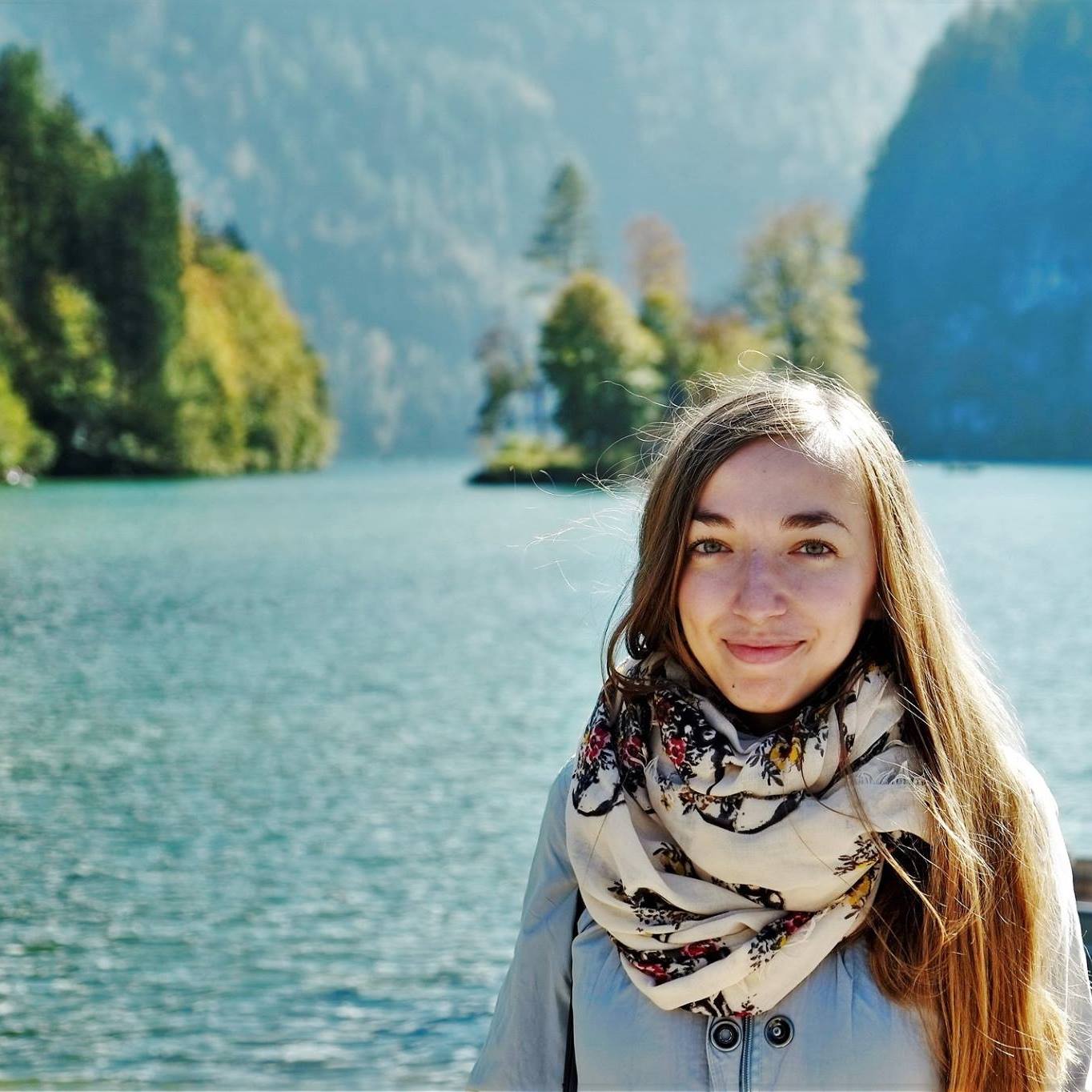
Mateja Hajdinjak (Dr. rer. nat.) is a molecular biologist from Croatia using ancient DNA to study human evolutionary history. She completed her PhD at the Max Planck Institute for Evolutionary Anthropology in Leipzig, Germany, under supervision of Dr. Matthias Meyer and Prof. Svante Pääbo, recovering and analysing genome-wide data of some of the last Neandertals and some of the earliest modern humans in Eurasia. As a Marie Skłodowska Curie Individual Fellow she then went to the Ancient Genomics Laboratory of Dr. Pontus Skoglund at the Francis Crick Institute in London, United Kingdom, where she continued working on human evolutionary genomics and tracing origins of modern human ancestry using ancient DNA, with a special focus on ancient hunter gatherer groups in Africa and west Eurasia. She is currently a group leader at the Max Planck Institute for Evolutionary Anthropology in Leipzig, Germany.
In recent years, ground-breaking strides have been made in uncovering the secrets of archaic and ancient human genomes. Through the sequencing and analysis of these genomes, we have gained unprecedented insight into the origins, movements, and relationships of past and present populations. While the genomes of present-day humans offer some clues to our evolutionary history, ancient DNA has unlocked invaluable knowledge that would otherwise remain inaccessible. This is particularly evident in our studies of the Middle to Upper Palaeolithic transition in Europe, a transformative period which saw significant changes in the archaeological record and coincided with the expansion of modern humans and the disappearance of Neandertals. Despite the scarcity of hominin remains from this time period and the limits to ancient DNA preservation, we have made a lot of progress in understanding the genetic history of both the resident archaics and the early human dispersals in Eurasia. Our recent studies, which employed cutting-edge techniques to circumvent these challenges, have yielded exciting new insights into the fine-scale interactions between Neandertals and modern humans, as well as their population history, which I will cover in this talk.
Dr Amanda Henry is Associate Professor at the Faculty of Archaeology. She has been developing the use of plant microremains from archaeological contexts as markers of diet. She has explored differences in the plant food consumption between Neanderthals and Early Modern Humans, and has looked at the kinds of foods our very early australopith ancestors ate.
Coming soon.

In this year's Biotechnology Session, you will have the opportunity to learn about intelligence beyond the human mind and how the interface between biology and technology is being currently challenged. From synthetic biological intelligence to biologically inspired artificial intelligence, in these lectures you will be able to understand how our brain and neurons can be used to create neural networks that reproduce human action and problem solving, exemplifying the adaptive nature of this biological system.
This Session will feature Doctor Anjali Bhat, from the Wellcome Centre for Human Neuroimaging, and Professor Mario Senden, from the Department of Cognitive Neuroscience at Maastricht University.
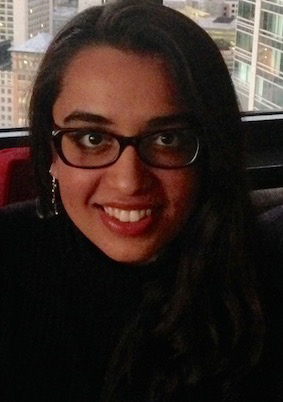
Anjali Bhat is a postdoctoral research fellow at the Wellcome Centre for Human Neuroimaging, working with Principal Investigators Karl Friston, Rosalyn Moran and Georg Northoff. Their project is titled, “The self as agent-environment nexus: Crossing disciplinary boundaries to help human selves and anticipate artificial selves.” In particular, Dr. Anjali is interested in delusional beliefs and altered percepts, as seen in conspiracy thinking, psychedelic states and psychosis. Her previous work considered the neuroimmunological basis of psychosis, bridging various approaches (theoretical neurobiology, cognitive neuroscience, psychiatric genetics, cell biology) to ask the question, “Why does prenatal infection prime the brain for psychosis?” Central themes of her research include: psychosis, active inference, interoception, self-other distinctions in the mind, immune system and in pregnancy; hallucinations, delusions, psychedelics and conspiracy theories.
Differentiating 'self' from 'other', or alterity, at a biological interface involves a delicate balance of maintaining a boundary while still communicating across it. In this talk, I will introduce two new perspectives on biological alterity that emerge from the action-perception cycle as delineated by the free energy principle (FEP). I will begin by overviewing how the FEP and its corollary, active inference, emerges from perceptual biases well-described in psychology. I then turn to alterity in the immune system and how it may be understood as an inferential process - namely, immunoception. Finally, I will present findings from recent work on an interface between in vitro neuronal networks and in silico computing called DishBrain, which demonstrates this inherent adaptive capacity of biological systems by teaching the neurons to play the arcade game 'Pong'.
Mario Senden is an assistant professor in Cognitive Computational Neuroscience. He obtained his PhD at Maastricht University for his work on the integration of neuroimaging with computational neuroscience to study information processing in the early visual cortex as well as large-scale cortico-cortical network dynamics. After completion of his PhD, he joined the Human Brain Project and began work as a postdoctoral researcher at the Department of Cognitive Neuroscience in Maastricht and eventually took an assistant professorship within that department. His primary research interest lies in the perception-action cycle underlying goal-directed hand movements, with a particular focus on the role of visual perception and large-scale brain dynamics in the coordination of complex hand movements. He has approached these topics through computational modeling using both goal-driven deep learning and biophysical modeling approaches as well as techniques from data-driven science for the discovery of system equations from data.
The focus of my lecture will be how biologically inspired deep neural networks trained on ecologically valid tasks and natural stimuli offer an exciting new approach to develop models of brain function.
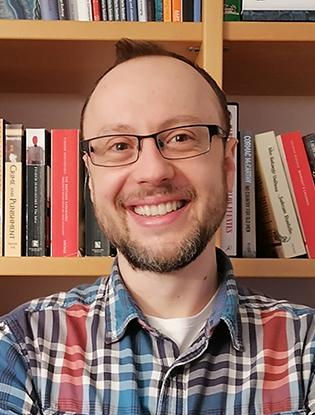

This year, in the Nobel Prize Session we will have the pleasure of having Dr. James Orbinksi with us!
He was the International Council President of Médecins Sans Frontières (Doctors Without Borders), at the time the organization received the Nobel Peace Prize in 1999.

Dr. Orbinski is professor and inaugural Director of York University’s Dahdaleh Institute for Global Health Research, and professor of medicine (clinical public health) at the University of Toronto. As a medical doctor, humanitarian practitioner and advocate, best-selling author, and a leading scholar in global health, Dr. Orbinski believes in actively engaging and shaping our world so that it is more just, fair and humane. He has worked providing medical humanitarian relief in situations of war, famine, epidemic disease and genocide with Médecins Sans Frontières / Doctors Without Borders (MSF). He was elected International President of MSF from 1998-2001, and accepted the Nobel Peace Prize awarded to MSF in 1999. He is the author of the award-winning and best-selling book An Imperfect Offering: Humanitarianism in the 21st Century. He was co-Chair of the Drugs For Neglected Diseases Working Group, which launched the not-for-profit Drugs for Neglected Diseases Initiative ( DNDi.org). He also co-founded Dignitas International which started and maintained more than 400,000 people in Malawi on full treatment for HIV/AIDs, actively conducted and published more than 100 research papers, and trained more than 12,000 Malawian Health Care Workers. Dr. Orbinski leads the Dahdaleh Institute at York University, which is committed to equity, excellence and effectiveness in critical problem solving for its three research themes of Planetary Health, Global Health and Humanitarianism and Global Health Foresighting. His current work focuses on developing new infectious disease control tools to improve humanitarian assistance in refugee camp and IDP settings, and using Computer Modelling and Artificial Intelligence for better humanitarian and clinical public health interventions in response to pandemic diseases (like COVID-19), and in response to the health impacts of global warming in the Global South.
He is an Officer of the Order of Canada, and has received the Meritorious Service Cross for his leadership in providing direct medical relief in Kigali during the 1994 genocide in Rwanda. An avid canoeist, Dr. Orbinski lives in Guelph, Canada, with his wife and their three teenagers.

In this year's YES Meeting we will have an afternoon dedicated to women that occupy positions of leadership with global impact in the biomedical field. They will take us through their individual journeys, elaborating on some of their challenges and triumphs as they accomplish their goals.
In the Career Session, you will hear a lecture from Dr. Nupur Kohli, a multi-award winning Healthcare Leader.

Nupur Kohli, an M.D. and Harvard Business School, Exec MBA PLD Leadership and Strategy, is a multi-award winning Healthcare Leader, Executive Leadership trainer, Speaker, Author and Medical Doctor. She was a speaker in several sessions and delegate at the World Economic Forum Annual Meeting in Davos 2022. Currently she is supervisory board member for UNICEF Netherlands, board member of Amsterdam Economic Board and Impact Advisory Council member of the World Economic Forum Global Shapers. She is also co-secretary of the United Nations Association Netherlands, an appointed member of the European Health Parliament (EHP), CEO Vedanka BV, specialist in European Business Leadership training to the executives of large companies, CEO of drnupurkohli.com and healthcare advisory NIIS Health, Netherlands. She is project champion for the Women’s Health Initiative of the World Economic Forum. An internationally acclaimed speaker, Nupur has given worldwide more than 150 speeches in recent years. Winner of the TEDx speaker award in Delft, Netherlands she has given 7 TEDx Talks in Europe and Asia and has been regularly featured in European and International media outlets in all formats. Further, she aspires to reduce stress in societies and businesses, affecting decision-making, productivity, and profitability. She did substantial research on stress and productivity and is author of the book "Chill! How to survive stress and improve personal and professional productivity. Symptoms and solutions to chronic pressure" with a foreword from two former Prime Ministers from Europe and Asia. She received the Most Inspiring Woman of the Netherlands award twice. For leading gender equality and women empowerment, honored by the Dutch Government. Dutch Financial Times (FD) has placed her in the list of top 50 young leaders of the Netherlands 2019.

In this year's YES Meeting we will have an afternoon dedicated to women that occupy positions of leadership with global impact in the biomedical field. They will take us through their individual journeys, elaborating on some of their challenges and triumphs as they accomplish their goals.
In the Novo Nordisk Prize Session, you will hear a lecture from Professor Molly Stevens, Professor at Oxford University, Imperial College London and Karolinska Institute and winner of the 2018 Rosalind Franklin Medal and Prize and the 2023 Novo Nordisk Prize.

Prof Molly M Stevens FREng FRS was appointed John Black Professor of Bionanoscience at Oxford University in April 2023 and also holds part-time professorships at Imperial College London and Karolinska Institutet.
She graduated with a First-Class Honours BPharm degree from Bath University in 1995 and a PhD from the University of Nottingham in 2001. After postdoctoral research in the Langer Lab at MIT, she joined Imperial College London in 2004 as a lecturer and was promoted to Professor in 2008 as one of the youngest Professors ever in the history of the institution.
Molly’s multidisciplinary research balances the investigation of fundamental science with the development of technology to address some of the major healthcare challenges. She is a serial entrepreneur and the founder of several companies in the diagnostics, advanced therapeutics and regenerative medicine space. Her work has been instrumental in elucidating the bio-material interfaces. She has created a broad portfolio of designer biomaterials for applications in disease diagnostics and regenerative medicine. Her substantial body of work influences research groups around the world (>430 publications, h-index 104, >44k citations, 2018, 2021 and 2022 Clarivate Analytics Highly Cited Researcher in Cross-Field research).
Molly holds numerous leadership positions including Director of the UK Regenerative Medicine Platform "Smart Acellular Materials" Hub, Deputy Director of the EPSRC IRC in Early-Warning Sensing Systems for Infectious Diseases and Scientist Trustee of the National Gallery. She is Fellow of the Royal Society and the Royal Academy of Engineering (UK), Foreign Member of the National Academy of Engineering (USA) and International Honorary Member of the American Academy of Arts and Science.

In this Session, you will have the chance to learn about Paleogenetics, the study of the past through the examination of genetic material preserved from the remains of ancient organisms. Studying ancient DNA provides us with information about many aspects of the human species in the past: population demography, genealogy, disease studies, phylogenetic relationships between different mammals and interpretation of paleoclimate.
In recent years, groundbreaking advances have been made in uncovering the secrets of
archaic and ancient human genomes. The sequencing and analysis of these genomes allowed
us to better understand the origins, movements and relationships of the populations of the
past and present. Although the genomes of present-day humans provide some clues to
the historical evolution of the human being, the study of ancient DNA has offered us knowledge
invaluable that would otherwise remain inaccessible.

Mateja Hajdinjak (Dr. rer. nat.) is a molecular biologist from Croatia using ancient DNA to study human evolutionary history. She completed her PhD at the Max Planck Institute for Evolutionary Anthropology in Leipzig, Germany, under supervision of Dr. Matthias Meyer and Prof. Svante Pääbo, recovering and analysing genome-wide data of some of the last Neandertals and some of the earliest modern humans in Eurasia. As a Marie Skłodowska Curie Individual Fellow she then went to the Ancient Genomics Laboratory of Dr. Pontus Skoglund at the Francis Crick Institute in London, United Kingdom, where she continued working on human evolutionary genomics and tracing origins of modern human ancestry using ancient DNA, with a special focus on ancient hunter gatherer groups in Africa and west Eurasia. She is currently a group leader at the Max Planck Institute for Evolutionary Anthropology in Leipzig, Germany.

Dr Amanda Henry is Associate Professor at the Faculty of Archaeology. She has been developing the use of plant microremains from archaeological contexts as markers of diet. She has explored differences in the plant food consumption between Neanderthals and Early Modern Humans, and has looked at the kinds of foods our very early australopith ancestors ate.

This year, the Neurosciences Session will unravel the secrets of the sensory world!
In this Session, you will have the chance to learn about the different ways in which we experience the sensory world and how this correlates to several aspects of cognition and behavior. Furthermore, this Session will dive into the topic of crossmodal plasticity, how it might recycle the intrinsic multisensory scaffolding of functional brain networks and its implications in sensory restoration.
This Session will count with the presence of Professor Jamie Ward, Professor of Cognitive Neuroscience at the University of Sussex, and Professor Olivier Collignon, Professor at UCLouvain and Director of the CPP Lab.

Olivier is a research fellow at the National Fund for Scientific Research (Belgium) and Professor at UCLouvain. He also holds a part-time position at the Sense Innovation and Research Center (HES-SO Valais) in Switzerland. His lab (CPP-Lab: https://cpplab.be/) is currently a vibrant place hosting 18 researchers from several countries and with diverse backgrounds (psychology, engineering, physics, and philosophy) which creates a fertile environment for the development of multidisciplinary research. The CPP lab relies on the respective advantages of a plurality of methods (Psychophysics, EEG/MEG, stereotactic-EEG, TMS, fMRI) to converge toward a comprehensive understanding of the mechanisms underlying crossmodal perception and plasticity. More generally, his research is driven by the strong conviction that the study of sensory deprived individuals represents an excellent model to probe how the brain develops, maintains, and changes its functional tuning to adapt its interaction with the environment. Olivier was among the first to generate the idea that crossmodal reorganization in blind people is constrained by the original computational duties of the visually deprived occipital regions. His scientific achievements both conceptual and methodological prompted several (inter)national collaborations.

Jamie Ward is Professor of Cognitive Neuroscience at the University of Sussex, UK. He has an MA in Natural Sciences from Cambridge and Ph.D. in Psychology from Birmingham, and previously held a faculty position at University College London before moving to Sussex. His research concerns the neurocognitive underpinnings of unusual sensory experiences with a long-standing expertise in synaesthesia, and a more recent research profile in atypical sensory sensitivities. His research group employs various methods within cognitive psychology and cognitive neuroscience (e.g. fMRI). He was a Director of Sussex Neuroscience and was Founding Editor of the journal, Cognitive Neuroscience. In addition to his research, he is well-known as an author of leading textbooks (Students Guide to Cognitive Neuroscience; Students Guide to Social Neuroscience).

In this year's Biotechnology Session, you will have the opportunity to learn about intelligence beyond the human mind and how the interface between biology and technology is being currently challenged. From synthetic biological intelligence to biologically inspired artificial intelligence, in these lectures you will be able to understand how our brain and neurons can be used to create neural networks that reproduce human action and problem solving, exemplifying the adaptive nature of this biological system.
This Session will feature Doctor Anjali Bhat, from the Wellcome Centre for Human Neuroimaging, and Professor Mario Senden, from the Department of Cognitive Neuroscience at Maastricht University.

Anjali Bhat is a postdoctoral research fellow at the Wellcome Centre for Human Neuroimaging, working with Principal Investigators Karl Friston, Rosalyn Moran and Georg Northoff. Their project is titled, “The self as agent-environment nexus: Crossing disciplinary boundaries to help human selves and anticipate artificial selves.” In particular, Dr. Anjali is interested in delusional beliefs and altered percepts, as seen in conspiracy thinking, psychedelic states and psychosis. Her previous work considered the neuroimmunological basis of psychosis, bridging various approaches (theoretical neurobiology, cognitive neuroscience, psychiatric genetics, cell biology) to ask the question, “Why does prenatal infection prime the brain for psychosis?” Central themes of her research include: psychosis, active inference, interoception, self-other distinctions in the mind, immune system and in pregnancy; hallucinations, delusions, psychedelics and conspiracy theories.

Mario Senden is an assistant professor in Cognitive Computational Neuroscience. He obtained his PhD at Maastricht University for his work on the integration of neuroimaging with computational neuroscience to study information processing in the early visual cortex as well as large-scale cortico-cortical network dynamics. After completion of his PhD, he joined the Human Brain Project and began work as a postdoctoral researcher at the Department of Cognitive Neuroscience in Maastricht and eventually took an assistant professorship within that department. His primary research interest lies in the perception-action cycle underlying goal-directed hand movements, with a particular focus on the role of visual perception and large-scale brain dynamics in the coordination of complex hand movements. He has approached these topics through computational modeling using both goal-driven deep learning and biophysical modeling approaches as well as techniques from data-driven science for the discovery of system equations from data.

The continuous technological advances on molecular biology have allowed the development of novel drugs in several medical fields. However, this enhancement has not been applied to antibiotics, mostly due to the problem of emerging antibiotic resistance. Therefore, it is crucial the development of new therapeutic targets. In this year’s Molecular Biology Session, promising technologies for the development of new antibiotics will be presented. From molecular mechanisms on protein quality control - bacPROTACTS - to phage therapy, this edition's Molecular Biology Session will feature Professor Laurent Debarbieux from Lille University, in France, and Professor Tim Clausen from Research Institute of Molecular Pathology in Vienna, Austria.

Laurent Debarbieux is a molecular microbiologist who holds a PhD from Lille University, France. He first studied the bacterial model organism Escherichia coli and in particular protein folding and protein secretion during his Post-doctorate in Harvard Medical School. After joining Institut Pasteur, he turned his attention to bacteriophages and their use to treat bacterial infections caused by antibiotic resistant bacteria. Using murine models his team currently investigates the potential and limits of phage therapy. L. Debarbieux is a Trustee of the International Society for Viruses of Microorganisms and President of the non-for profit association P.H.A.G.E. (Phage for Human Application Group Europe).

Tim Clausen grew up in Kappeln/Schlei (Germany) and studied Biology at the University of Constance specializing in Bio-organic Chemistry (Prof. Dr. Sandro Ghisla). In 1994, he joined the group of Prof. Dr. Robert Huber (Max-Planck-Institute for Biochemistry, Martinsried, Germany) to learn Protein Crystallography. After obtaining his Ph.D., Tim continued at the MPI as a Junior Group Leader studying the mechanistic versatility of protein co-factors. In 2002, he was recruited as a Group Leader to the Institute of Molecular Pathology (IMP) in Vienna (Austria), where he was promoted in 2009 to a Senior Scientist. In their research, the Clausen Group analyzes the mechanisms of protease and chaperone machines implicated in protein misfolding diseases and bacterial pathogenicity. The group discovered the phosphorylation of arginine residues as novel protein modification and revealed its role as degradation tag in bacterial. Building on this work, the group developed the BacPROTAC concept, bringing small-molecule degraders to the bacterial world.

This year's Clinical Session will be on the topic of Dermatology, a medical specialty which is being explored in several observational and interventional clinical studies, involving patients with a broad range of diseases. From novel diagnostic approaches to innovative methodologies of skin cancer treatment, these lectures will bring some of the latest technologies in dermatologic care.
This Session will feature Dr. Nicola Mulholland from King’s College Hospital, in London, and Professor Vasilis Ntziachristos from the Technical University of Munich.

Dr Nicola Mulholland is a Consultant Clinical Radiologist and Nuclear Medicine Physician specializing in radionuclide radiotherapy, functional imaging with PETCT& WBMRI, cross sectional radiology and cancer. She received her medical degree from the University of London in 1995 and became a Fellow of the Royal College of Physicians in 1999. She joined King's College Hospital in 2007 and is the lead clinician for nuclear medicine and PETCT. She is also an honorary senior lecturer at King's College London.
Dr Nicola Mulholland also became a Fellow of the Royal College of Radiologists in 2004. She completed dual training in clinical radiology and nuclear medicine and was registered by the General Medical Council as a specialist in March and December of 2007.

Professor Vasilis Ntziachristos studied electrical engineering at Aristotle University in Thessaloniki. Following his M.Sc. and Ph.D. in the Department of Bioengineering at the University of Pennsylvania, he was then appointed Assistant Professor and Director of the Laboratory for Bio-Optics and Molecular Imaging at Harvard University and Massachusetts General Hospital. Since 2007, he has served as Professor of Medicine and Electrical Engineering and the Chair of Biological Imaging at the Technical University of Munich and Director of the Institute of Biological and Medical Imaging at Helmholtz Munich. Prof. Ntziachristos is also currently Director of Bioengineering at the Helmholtz Pioneer Campus and the Head of the Bioengineering Department at Helmholtz Munich. Prof. Ntziachristos is the founder of the journal Photoacoustics, regularly Chairs in international meetings and councils and has received numerous awards and distinctions, including the Karl Heinz Beckurts prize (2021), the Chaire Blaise Pascal (2019) from the Region Ile-de-France, the Gold Medal from the Society for Molecular Imaging (2015), the Gottfried Leibnitz prize from the German Research Foundation (2013), the Erwin Schrödinger Award (2012) and was named one of the world’s top innovators by the Massachusetts Institute of Technology (MIT) Technology Review in 2004.

This year, the Young Innovators Session will bring you a new outlook on the product of the minds of the new generation. With evergrowing demands on the technology and innovation required for quality healthcare, different backgrounds and perspectives are becoming increasingly essential. These lectures will present to you ambitious entrepreneurs and their brilliant creations, with the potential to push their fields forward, as we dive into a more entrepreneurial side of science, brought to you by the brightest young minds of the next generation.
This Session will feature Joseph Bentley, founder and CEO of ACT Medical, and Rodrigo Val d’Oleiros e Silva, CEO of Orgavalue.

Joseph is an International Award winning product designer and Managing Director of ACT Medical. He was the first recipient of the Medical James Dyson award in 2021, and is now looking to revolutionize the treatment of bleeding from penetrating wounds, with a particular focus on knife crime. Joseph is also undertaking an 1851 Enterprise Fellowship at the Royal Academy of Engineering as well as being a Fellow of the Royal Society of Arts, where he has a keen interest in championing non-traditional pathways into STEM.

Rodrigo Val d’Oleiros e Silva is the CEO & Founder of Orgavalue, a start-up focused on innovative tissue bioengineering therapies, having recently won the Young Entrepreneur Award 2022 by ANJE with a representation of the Minister of Culture and the Portugal Presidency. Rodrigo is a Doctor of Dental Medicine and holds a degree in Entrepreneurship and Technology from Stanford University and U.C. Berkeley. He also Studies Medicine at the School of Medicine of the University of Minho and is a PhD Student in the International Program BioTechHealth at ICBAS/UP, in collaboration with the EIT Health PhD Ageing Program. Furthermore, he is a Researcher in regenerative medicine and tissue bioengineering at i3S/INEB and a Representative of Research and Innovation and Member of the Governing Board of European University Alliance for Global Health. Rodrigo Val d’Oleiros e Silva is also one of Forbes 30 Under 30 i n HealthCare.
